
The Monthly Bulletin of Statistics presents current economic and social statistics for more than 200 countries and territories of the world. It contains over 50 tables of monthly and/or bimonthly, quarterly and annual data on a variety of subjects illustrating important economic trends and developments, including population, prices, employment and earnings, energy, manufacturing, transport, construction, international merchandise trade and finance.
In addition to the regular recurrent monthly tables, this issue includes Bimonthly and quarterly tables: Retail price indices relating to living expenditures of United Nations officials; Civil aviation traffic: passenger-km and cargo…
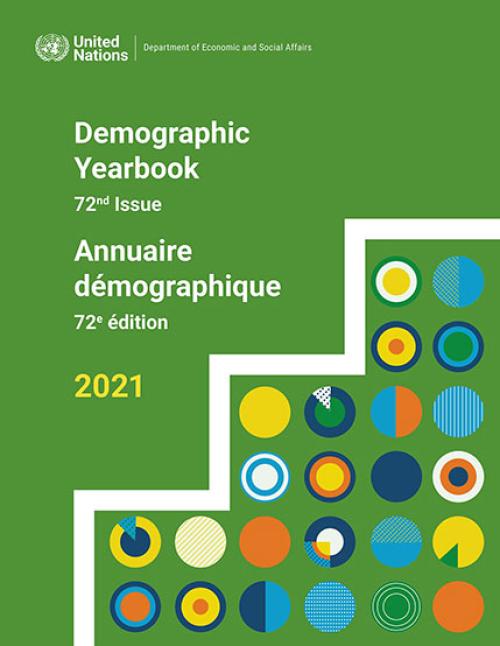
Demographic Yearbook 2021 is the the 72nd issue in a series published since 1948. Through the cooperation with the National Statistical Offices, official demographic statistics are compiled in the Yearbook, as available, for more than 230 countries and areas of the world up to the reference year 2021. This edition of the Yearbook contains chapters on the population size and distribution, the population of capital cities, fertility, foetal mortality, infant and maternal mortality, general mortality, nuptiality and divorce.
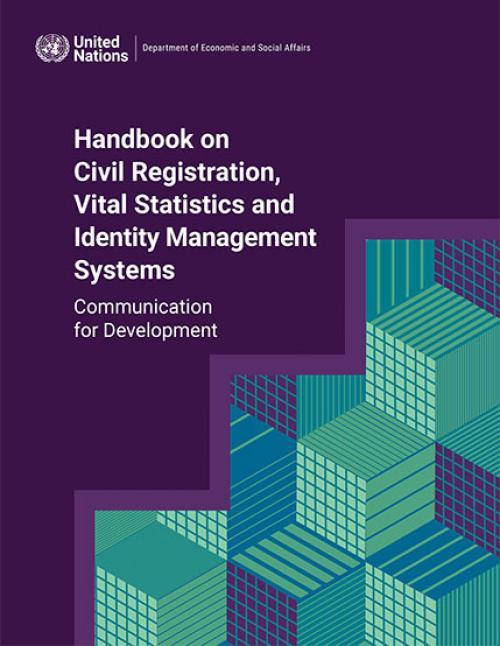
The present Handbook on Civil Registration, Vital Statistics and Identity Management Systems: Communication for Development provides guidance and assistance to countries to help them to strategically design and carry out evidence-based and measurable communication for development activities in support of a comprehensive improvement programme of civil registration, vital statistics and identity management systems. It is the first revision of the Handbook on Civil Registration and Vital Statistics Systems: Developing Information, Education and Communication, issued in 1998.
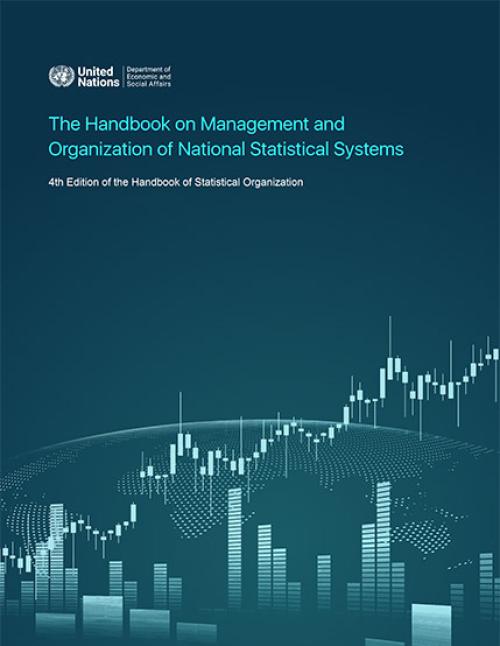
The Handbook on Management and Organization of National Statistical Systems, the 4th edition of a series of publications on the management of statistical organizations, was endorsed by the 52nd session of the UNSC in March 2021 as a non-prescriptive compendium targeting chief statisticians, senior managers, and staff members of statistical organizations. The Handbook provides guidance on how to develop and maintain national statistical capacity that is fit for purpose and apprises critical issues and topics, including the integration of innovative data sources and technologies in the production of statistics and indicators. To remain relevant in a rapidly changing data ecosystem, the…
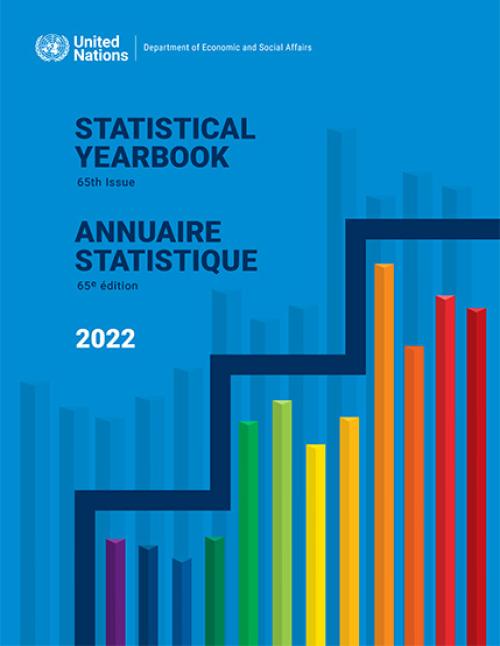
The Statistical Yearbook provides in a single volume a comprehensive compilation of internationally available statistics on social and economic conditions and activities, at world, regional and national levels, for an appropriate historical period. It is prepared by the Statistics Division, Department of Economic and Social Affairs, of the United Nations Secretariat.
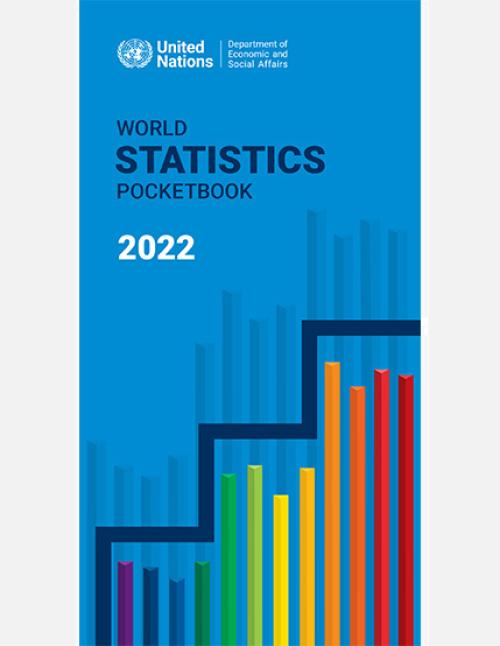
The World Statistics Pocketbook, 2022 edition is the forty-sixth in a series of annual compilations of key statistical indicators prepared by the United Nations Statistics Division of the Department of Economic and Social Affairs. Over 50 indicators have been collected from more than 20 international statistical sources and are presented in one-page profiles for 30 world geographical regions and 232 countries or areas. The Pocketbook is organized into 5 sections; general information, economic indicators, major trading partners, social indicators, and environmental and infrastructure indicators. This issue presents data for the economic, social, environmental and infrastructure sections…
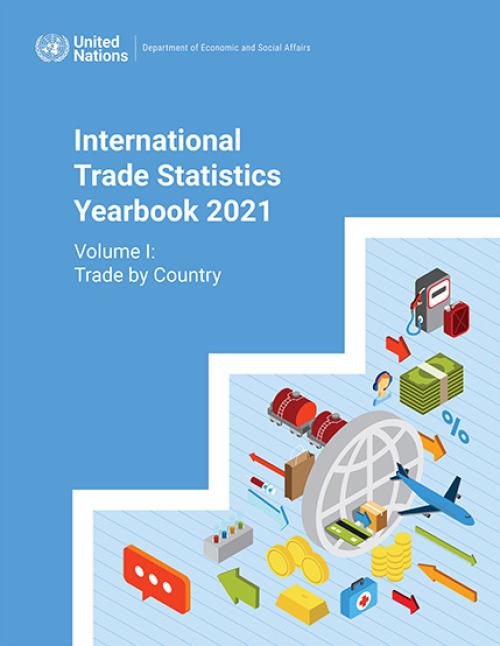
This publication is issued in two volumes which offer a comprehensive view of the topic. Volume I: Trade by Country, compiled in May of each year, presents detailed data on imports and exports by commodity and trading partner. Volume II: trade by Commodity contains the detailed tables showing international trade for a variety of commodities and world trade tables covering trade values and indices. The presented data, charts and analyses will benefit policymakers, government agencies, the business and finance sectors, non-government organizations, civil society organizations, journalists, academics, researchers, students and anyone who is interested in trade issues.
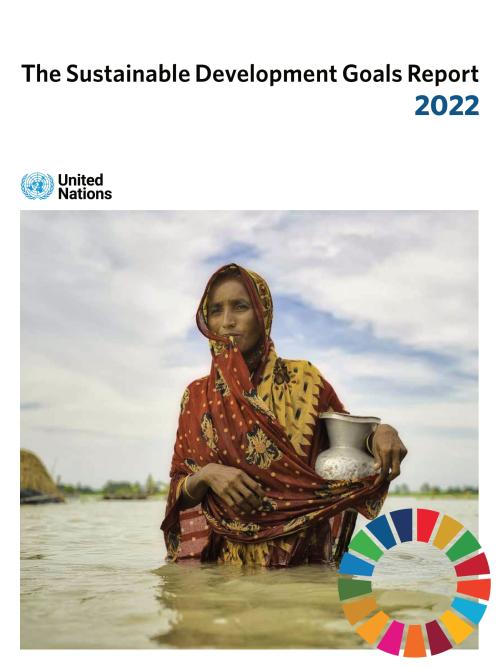
The Sustainable Development Goals Report 2022 provides a global overview of progress on the implementation of the 2030 Agenda for Sustainable Development, using the latest available data and estimates. It tracks the global and regional progress towards the 17 Goals with in-depth analyses of selected indicators for each Goal.
According to the Report, cascading and interlinked crises are putting the 2030 Agenda for Sustainable Development in grave danger, along with humanity’s very own survival. The Report highlights the severity and magnitude of the challenges before us. The confluence of crises, dominated by COVID-19, climate change, and conflicts, are creating spin-off impacts on…
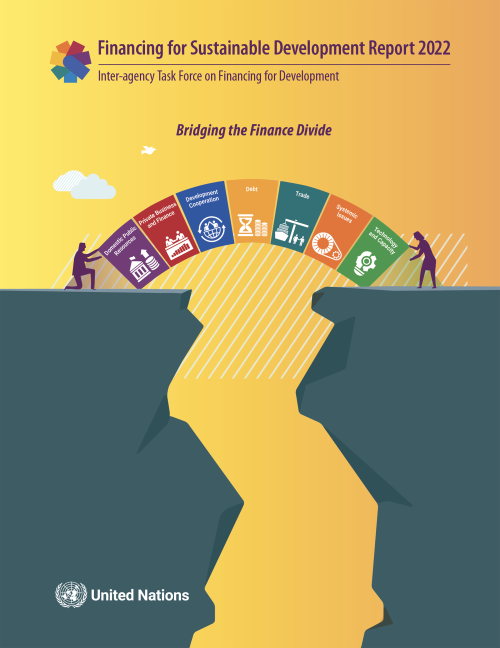
Developing countries still have to regain lost ground from the COVID-19 pandemic. The pandemic has put more countries at risk of debt distress, constrained their fiscal space and hampered economic growth. The war in Ukraine is exacerbating all these challenges. In this context, the 2022 Financing for Sustainable Development Report identifies a “great finance divide” – the inability of poorer countries to raise sufficient resources and borrow affordably for investment.
The great finance divide leaves developing countries unable to respond to crises and invest in sustainable development. On average, developed countries use 3.5 per cent of revenue to pay interest on their debt,…
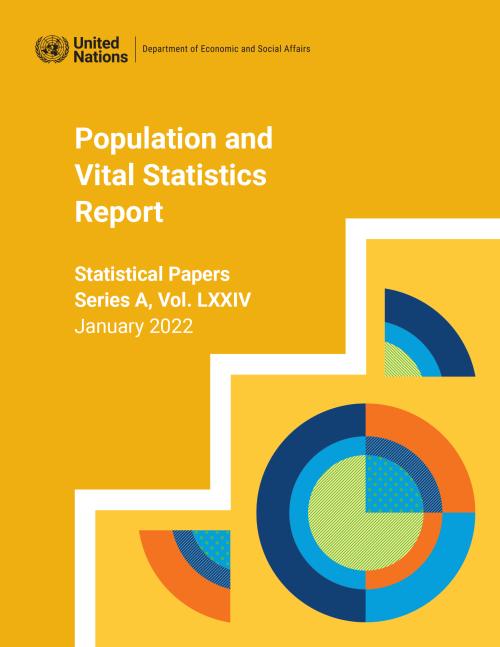
The Population and Vital Statistics Report presents most recent data on population size (total, male and female) from the latest available census of the population, national official population estimates and the number and rate (births, deaths and infant deaths) for the latest available year within the past 15 years. It also presents United Nations estimates of the mid-year population of the world, and its major areas and regions.
This report, in this format, is published once a year, while the electronic version is updated every two weeks at the UNSD website. The report presents data on total, female and male population counts from the most recent population census, population…
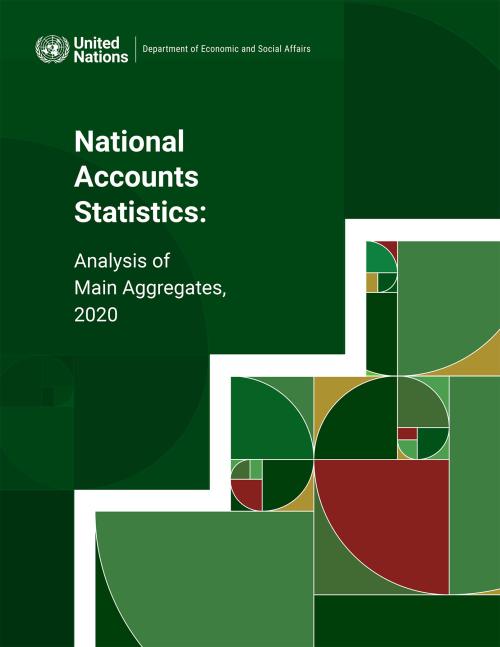
The National Accounts Statistics: Analysis of Main Aggregates, 2020 is the 51st issue of this publication which comprises in the form of analytical tables a summary of the principal national accounting aggregates based on official national accounts data for more than 200 countries and areas, covering 1970-2020. It also contains a section on the estimation methods used for compiling data. It is prepared by the Statistics Division of the Department of Economic and Social Affairs of the United Nations in cooperation with national statistical offices. Tables include analysis of data on gross domestic product (GDP) by different structural components. They are classified into: 1)…
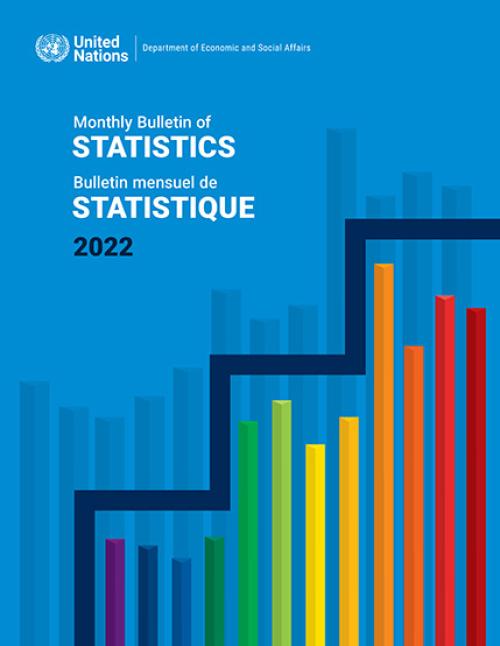
The Monthly Bulletin of Statistics presents current economic and social statistics for more than 200 countries and territories of the world. It contains over 50 tables of monthly and/or bimonthly, quarterly and annual data on a variety of subjects illustrating important economic trends and developments, including population, prices, employment and earnings, energy, manufacturing, transport, construction, international merchandise trade and finance.
In addition to the regular recurrent monthly tables, this issue includes Bimonthly and quarterly tables: Retail price indices relating to living expenditures of United Nations officials; Civil aviation traffic: passenger-km and…
 Welcome to the United Nations
Welcome to the United Nations